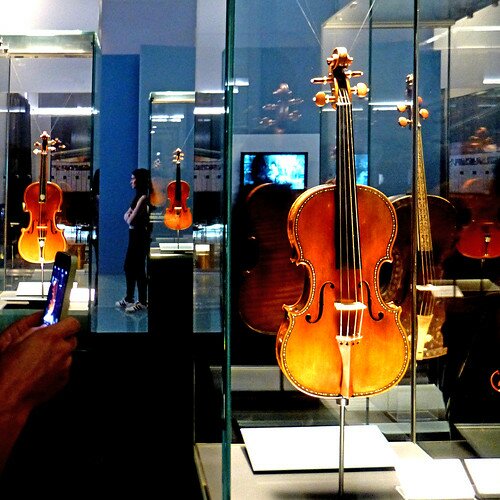Because he was deaf when he wrote them, Beethoven never heard his “late quartets”. This is a remarkable anecdote; an inhuman feat of human creativity. I was reminded of a resonant anecdote while reading in the Spectator US of a meeting between British Labour leader Jeremy Corbyn and his wife and Prince Harry and Meghan Markle—bear with me. The article described that the Laborite couple later sent the laborious couple a book of poems by Sor Juana Ines de la Cruz, a 17th century Mexican nun and poet. The Spectator describes her as “a poet known for her proto-feminism and early criticism of the Spanish empire.” She is also well known for having stopped writing her risqué poetry on the orders of the Church hierarchy. This is an interesting symmetry: Beethoven writing music for us that he would never hear; Sor Juana composing poems in her head that we would never read.
I pause on Sor Juana because I am more comfortable writing about literature than music. I have neither an ear nor much knowledge of classical music. But it does not make much effort to become greatly moved by it. It takes mostly the discipline to sit still. Whatever qualities required to compose this are beyond my comprehension and therefore seem almost god-like. To compose without being able to hear, as Beethoven did with his Late Quartets, requires a creative faculty that is so far beyond god-like that there are no words to describe it. That faculty can, perhaps, only be heard, and that is perhaps the point of the Late Quartets: the sound of things that cannot be even imagined.
The music had first moved me through the delightful and understated film, “A Late Quartet”, with Mark Ivaner, Catherine Keener, Imogen Poots, Philip Seymour Hoffman, and Christopher Walken. The film describes a string quartet that had spent its entire career mastering the Late Quartets. The main plot centers around the Walken character announcing that he will retire due to the onset of Parkinsons and the adjustments that follow. There has for a long time been an uneven exchange between Hollywood and classical music. Hollywood often draws from the repertoire for dramatic effect: Wagner in “Apocalypse Now”, William Tell in “A Clockwork Orange”, Mozart in “Out of Africa”, and even the Late Quartet Op. 131 in the documentary of “Band of Brothers”. Hollywood periodically repays stingily with a movie that dramatizes the music. “A Late Quartet” is such a movie. There was of course “Amadeus”, about which I still have mixed feelings. We know Mozart could be an ass but Tom Hulce seemed to ham him up. In the genre I would also recommend “Meeting Venus” about a post-Cold War attempt to produce a pan-European production of Wagner’s “Tannhäuser”, starring Glenn Close as a diva, dubbed by the superb Tiri Te Kanawa. Then of course, regarding the pain of perfection, Damien Chazelle’s brilliant “Whiplash”.
One of the great pleasures of CDs, compared to streaming, are the liner notes. Great music asks questions that want answers. About Op. 131 Schubert asked: “After this, what is left for us to write”. Beethoven himself, in his annotations to the fourth movement of Op. 135 wrote, “Muss es sein? Es muss sein.” Must it be? It must be. My recording of the Late Quartets was performed by the Budapest String Quartet between 1941 and 1960. In the liner notes I read that in the mid-1930s, Gertrude Clarke Whittall, daughter of Nebraska and widow of a prosperous British carpet dealer, bought five Stradivari instruments—three violins, a viola, and a cello—while on a trip to Europe and gave them to the Library of Congress. Her deed stipulated that they should be consistently played but never removed from the premises. For a quick understanding of the Stradivarius effect watch the Vivaldi episode of “Now Hear This”, the short-lived but delightful PBS show hosted by the violinist Scott Yoo, where he plays a Strad valued at $15 million. We, the people, have five of them in Washington, D.C. Whittal’s stipulation that the violins could not be removed from the premises of the Library of Congress but that they should be played consistently, however, created a problem: it was difficult for visiting artists to get the feel of the instruments if they could only play them on premise. The Library therefore established a residence for players, allowing them to understand the strings without leaving the library. The first and longest residency was the Budapest String Quartet.
In December 1937, Mrs. Whitall gave a brief radio address to the nation: “These instruments were made by the great craftsman Antonio . I held them in trust for a short time, and now they belong to every one of you, for they were given to our government to hold and protect forever.” Forever. Yet there is growing talk of civil war. A stray and hopefully unnecessary thought: What would become of such artifacts of civilization, once thought to be safe under America’s solidity? Scott Yoo’s Strad was brought to him by the mayor of Bergamo and a police escort. Here statues are being pulled down by mobs. St. John’s church on Lafayette Square in Washington was almost burned to the ground. Our mayors are fighting against our police. Muss es sein?
***
Photo by pom’. 



Comments